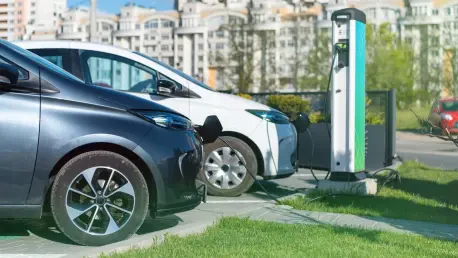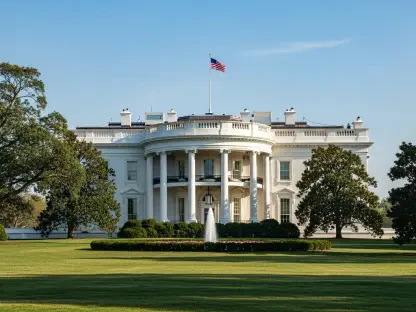In De Soto, Kansas, a groundbreaking moment in clean energy innovation unfolded as Panasonic inaugurated its largest economic development project. The factory, a sprawling 4.7 million-square-foot facility, marked the dawn of a transformative era for the electric vehicle (EV) industry. As guests gathered during the grand opening, discussions turned to the factory’s potential to substantially alter the EV landscape. What could this mean for the global push toward sustainable transport solutions?
Driving Innovation and Environmental Progress
As global economies face the challenges of climate change and resource scarcity, the necessity to revolutionize the EV industry is undeniable. The growing demand for electric vehicles underscores an urgent pivot from fossil fuels to more sustainable energy sources. Panasonic’s venture in Kansas signifies more than just an infrastructure expansion; it aligns with planetary priorities of reducing carbon footprints and promoting renewable energy use.
State-of-the-Art Technological Breakthroughs
Technological prowess is at the heart of Panasonic’s Kansas factory, showcased by its remarkable advances in battery production. The plant’s cutting-edge automation and efficiency place it ahead of Panasonic’s earlier Nevada endeavor, with increased productivity metrics epitomizing technological evolution. Compared to Nevada, this plant operates with notably less machinery yet achieves 20% higher productivity—a testament to its superior technological capabilities.
Economic Collaboration and Impact
Panasonic’s Kansas project is a symbol of extensive collaboration between the company, governmental entities, and local businesses. Economic projections estimate a commendable $2.5 billion yearly contribution to Kansas’s economy. This is further bolstered by incentives like the APEX Act, which aids in constructing an enticing business environment. The partnership underscores mutual commitments to regional growth and the fostering of long-term economic health.
Industry Insights and Expert Opinions
The Kansas factory has prompted reactions from industry insiders and stakeholders. Allan Swan and Yasuaki Takamoto, figures central to Panasonic’s North America operations, have provided compelling perspectives on this development. Insights from EV companies like Lucid Motors and comments from governmental representatives enrich the narrative, illustrating the industry shifts the factory portends.
Preparing a Workforce for Tomorrow
An equally important aspect of Panasonic’s initiative is its commitment to workforce development. Collaborating with local educational institutions, Panasonic has instituted comprehensive training programs to cultivate skilled labor. Such efforts ensure not only job creation but also workforce retention, integral for regional vitality. Ensuring a skilled workforce is vital in transforming ambitions into tangible successes.
In the wake of this factory’s emergence, the EV industry stands on the cusp of significant advancement. The Kansas facility is expected to drive substantial economic growth and technological innovation. Moving forward, such ventures emphasize not only immediate gains but also sustained benefits for communities and industries. As strategic endeavors like Panasonic’s propel us into the future of clean energy, they highlight the broader vision of a greener, more connected global economy.









